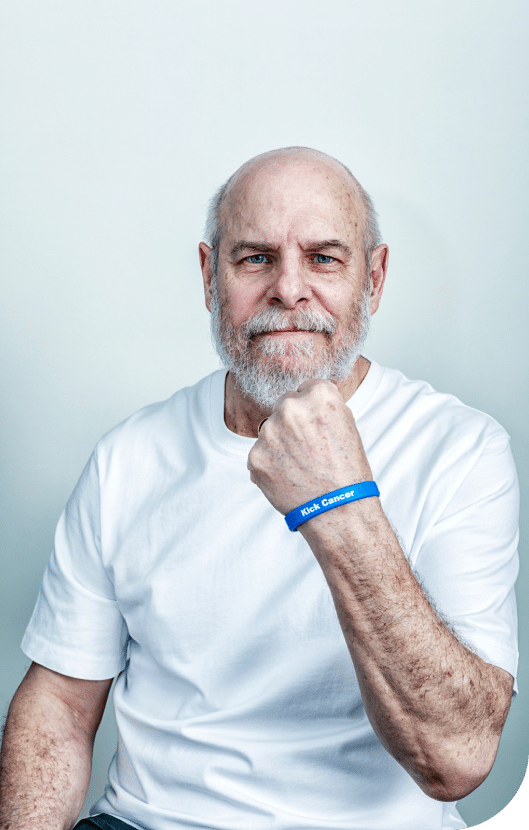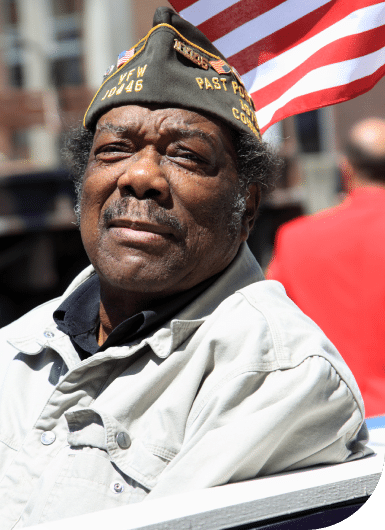Mesothelioma Survivor Benefits
If you were exposed to asbestos during active military service and were later on diagnosed with an asbestos-related illness, your survivors may be eligible to receive survivor benefits in the event of your death from mesothelioma. Eligible family members may qualify for monthly tax-free compensation and health care and educational benefits.
Home » National Mesothelioma Law Firm » Veterans » Mesothelioma Veterans Benefits » Mesothelioma Veterans Survivor Benefits
Military personnel from all service branches were exposed to high levels of asbestos, whether they served in the field, were stationed aboard Navy and Coast Guard vessels, or performed high-risk occupations. These veterans may develop fatal asbestos-related illnesses, including mesothelioma, lung cancer, and asbestosis caused by military asbestos exposure.
The life expectancy for pleural mesothelioma is 12 to 21 months after diagnosis, raising concerns about the financial security of surviving family members. Survivor benefits can protect families from financial devastation after a veteran’s untimely passing.

What are survivor benefits?
Veterans who develop service-connected asbestos-related illnesses qualify for VA benefits, of which survivor benefits are an extension. These benefits financially support a surviving spouse and dependents after the veteran’s death. They include health care benefits and the following tax-free compensation:
Who is eligible for survivor benefits?
Your family members may be eligible to file a VA claim for survivor benefits if your death stems from a service-connected injury or illness and you did not receive a dishonorable discharge. Mesothelioma qualifies as a service-connected illness if you prove you were exposed to asbestos while serving on active duty in the military.
The following family members may be eligible for benefits:
- Surviving spouse
- Dependent children under 18
- Dependent children over 18 and in an approved school program
- Surviving parents
Monthly Compensation for Survivors
The monthly compensation payable to survivors depends on specific details about the veteran’s military service and whether they purchased a survivor benefit plan.
Dependency and Indemnity Compensation
Dependency and indemnity compensation is a monthly benefit paid to a surviving spouse, children, or parents after the veteran’s death from service-connected mesothelioma or other asbestos-related illness. The monthly amount varies based on the relationship with the survivors and is adjusted annually for inflation.
Surviving Spouse and Children
The 2023 monthly amounts for spouses and children are:
Survivor
Payout per Person
Total for All Survivors
Surviving Spouse
$1,562.74
$1,562.74
Disabled child over 18
$659.83
$659.83
One child and no spouse
$659.83
$659.83
Two children and no spouse
$474.61
$949.21
Three children and no spouse
$412.88
$1,238.63
Four children and no spouse
$368.50
$1,474.01
“Helpless” child
$387.15
$387.15
A disabled child over 18 only qualifies for survivor benefits if the disability is permanent and began before age 18.
Surviving Parents
Surviving biological parents, adoptive parents, or foster parents of eligible veterans who died from service-connected mesothelioma may qualify for DIC if the countable income is below the thresholds set by Congress. Parents do not need to be dependents to receive this benefit.
This benefit is available to low-income surviving parents, and the monthly payout is calculated using annual income. For example, if you are the only surviving parent, your annual countable income must be below $18,240 to qualify. Your monthly benefit will be between $5 and $774.
If both parents are alive, the income limit is $24,518, and the monthly benefit amounts range between $5 and $529.
VA Survivors Pensions
A VA survivors pension provides monthly compensation to the surviving spouse and dependent children of a deceased veteran who performed active duty during wartime and was not dishonorably discharged. The following survivors may qualify:
- An unmarried surviving spouse
- A child under the age of 18
- A child ages 18 to 23 enrolled in a VA-approved education or training program
- A permanently disabled adult child whose disability began before age 18
The VA survivors pension program is a need-based program. If you are a survivor applying for this benefit, your income must be below the maximum annual pension rate to qualify.
Your net worth must also be below the limit, which changes yearly. As of 2023, the net worth limit is $150,538. Your net worth includes your annual income, personal property, and real estate that is not your primary residence.
If you are a surviving spouse and need assistance with your daily needs or are housebound, you may qualify for Aid and Attendance or Housebound Benefits. These programs increase your monthly income limits and pension benefits.
Your household composition and whether you qualify for either program determines your income limits. Income limits are:
Family Composition
Annual Income Limit
Monthly Income
Spouse only
$10,757
$896.42
Housebound spouse
$13,147
$1,095.58
Spouse in need of aid and attendance
$17,192
$1,432.67
With a dependent child
$14,078
$1,173.17
Housebound with a dependent child
$16,642
$1,386.83
Aid and attendance with a dependent child
$20,509
$1,709. 08
Surviving child only
$2,743
$228.58
Your monthly pension benefit will be the difference between your maximum annual pension rate and your countable income. If your countable income is $0, your compensation will equal the maximum annual pension rate.
Survivor Benefit Plans
A survivor benefit plan provides monthly annuity payments to the family of a veteran who voluntarily purchased this benefit at retirement. The Department of Defense, not the VA, administers this program. Veterans must purchase it on retirement; only those who served for at least 20 years can access it. Your annuity payments will go to the beneficiaries the veteran selected at the coverage’s purchase. Beneficiaries may include any combination of the following:
- Spouse
- Children
- Former spouse
- Other next of kin in the absence of a spouse or child
Survivor benefit plans pay up to 55 percent of the servicemember’s retirement pay, though the veteran can opt for a lower amount. Annuity payments are paid for life and adjusted annually for inflation.
To receive this benefit, you must promptly report the retired veteran’s death to the Defense Finance and Accounting Service.
Can I receive more than one type of survivor benefit?
You can receive full DIC and survivor benefit plan benefits simultaneously, but you cannot simultaneously receive a survivor’s pension with another program’s benefits. If you qualify for a survivor’s pension benefit and another program, you will receive whichever benefit is greater.
Military Health Care Benefits for Survivors
Surviving family members may be eligible for a comprehensive health insurance plan or a cost-sharing option, depending on the veteran’s retirement status.
TRICARE
TRICARE is a comprehensive health insurance plan for surviving family members of veterans who died in the line of active duty or retired from the military and subsequently died from a service-connected illness, including mesothelioma and other asbestos-related illnesses.
If you are a surviving spouse, you may receive TRICARE until you remarry. If you are a surviving child, you may receive TRICARE until you graduate from college or vocational training up to the age of 23. If you do not attend college or vocational school, coverage ends when you turn 18.

CHAMPVA
The Civilian Health and Medical Program of the Department of Veterans Affairs, or CHAMPVA, is a cost-sharing medical program that covers some medically necessary services, supplies, and pharmacy costs for surviving dependents who do not qualify for TRICARE. Covered services include:
- Ambulance service
- Surgery
- Durable medical equipment
- Family planning
- Pregnancy care
- Mental health services
- Skilled nursing care
- Hospice
This coverage is available to unmarried surviving spouses and dependent children, including children ages 18 to 23 attending an approved school or training program.
Chapter 35 Education Benefits
The Survivors’ and Dependents’ Educational Assistance Program provides monthly compensation for educational expenses for a surviving spouse and children ages 18 to 26 after the veteran has died from service-connected mesothelioma. These benefits may be applied to the following for up to 36 months:
- Undergraduate and graduate degree programs
- Career training certificates
- Educational counseling
- Career counseling
- Apprenticeships
- On-the-job training
Children who enter military service cannot receive benefits while on active duty, but they can request an extension following completion of their military service if needed, provided they are not dishonorably discharged. Extensions generally are not granted beyond the age of 31.
Surviving spouses remain eligible for benefits up to 10 years after the veteran’s death. Spouses may receive DIC and education benefits simultaneously, but children cannot.
College and Trade School Rates
The benefit amounts for students enrolled in college, university, vocational, and trade school are:
Enrollment Type
Monthly Benefit
Period
Monthly Benefit
Period
Monthly Benefit
Period
Monthly Benefit
Full-time student
$1,401
Three-quarter-time student
$1,107
Half-time student
$812
Less than half-time but more than quarter-time student
Cost of tuition and fees up to $812
Quarter-time student
Cost of tuition and fees up to $350.25
If tuition and fees are less than the monthly rate, a single lump sum payment will be issued at the commencement of each term.
Educational benefits for apprenticeships and on-the-job training are available in the following amounts for apprentices and trainees who work at least 120 hours each month:
Period
Monthly Benefit
Months 1 to 6
$890
Months 7 to 12
$669
Months 13 to 18
$439
Months 19 until completion
$223
How to Apply for Survivors’ Benefits
You can apply for survivors’ benefits by visiting the Department of Veterans Affairs in person. You can also apply for DIC or the VA survivors’ pension using the VA’s online application tool.
If you are a veteran’s surviving spouse or child, and you prefer to mail your application, you may do so by downloading VA Form 21P-534EZ and mailing it as instructed on the form. If you are a surviving parent, you must download and mail VA Form 21P-535.
You can obtain free application assistance through a veterans services representative. You can find one locally by searching the VA’s eBenefits page or the General Counsel’s list.

Can I sue the military for causing my loved one’s death?
You cannot sue the military for your loved one’s asbestos exposure, but you may be able to file a wrongful death mesothelioma lawsuit against the companies that supplied asbestos to the military. Our mesothelioma attorneys may be able to help you recover a substantial lump sum through such an action.
You cannot sue some companies because they filed for bankruptcy protection. However, they were required to establish asbestos trust funds for individuals they harmed through asbestos exposure.
We may be able to identify the asbestos companies responsible for your loved one’s exposure and file an asbestos trust fund claim for you.
Though the VA provides monthly compensation and health care coverage, this does not compensate you for everything you have lost.
If you or your loved one has contracted mesothelioma or another asbestos-related illness while serving in the military, you may qualify for substantial mesothelioma compensation in addition to your VA benefits. Contact us today for a free consultation.
By submitting this form, you agree to our terms & conditions. Please read the full disclaimer



